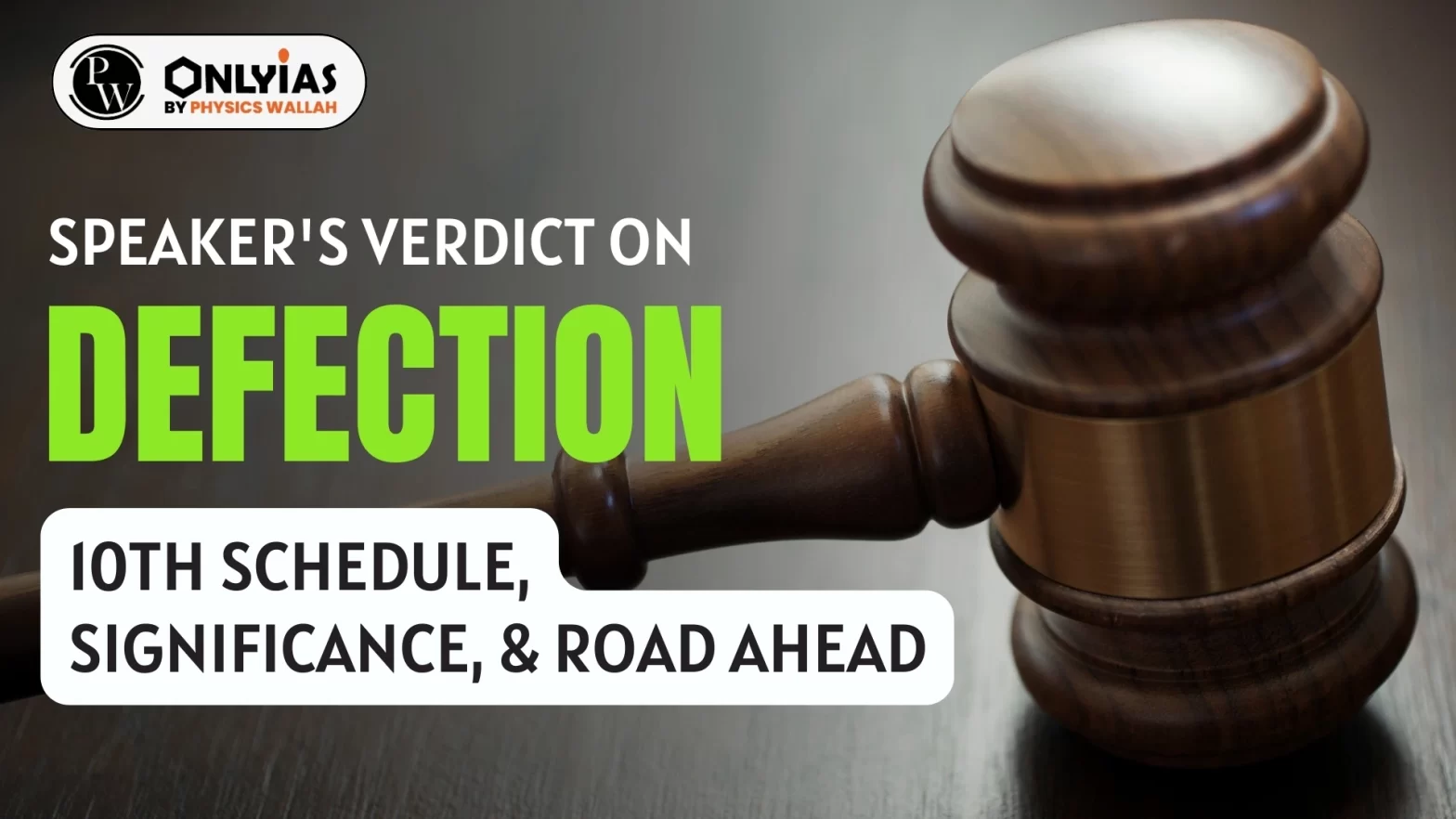![]() 15 Jan 2024
15 Jan 2024

This editorial is based on the news “The Speaker’s court: On the Maharashtra Assembly Speaker’s ruling” which was published in The hindu. The Maharashtra Assembly Speaker has recently ruled that the faction led by Chief Minister Eknath Shinde was the “real Shiv Sena” when the rival groups emerged on June 21, 2022.
| Relevancy for Prelims: Anti-Defection, Function of Speaker, Parliament, 10th Schedule.
Relevancy for Mains: Defection, Ground of Defection- Significance, Challenges and Way Forward of 10th Schedule. |
|---|
<div class="new-fform">
</div>